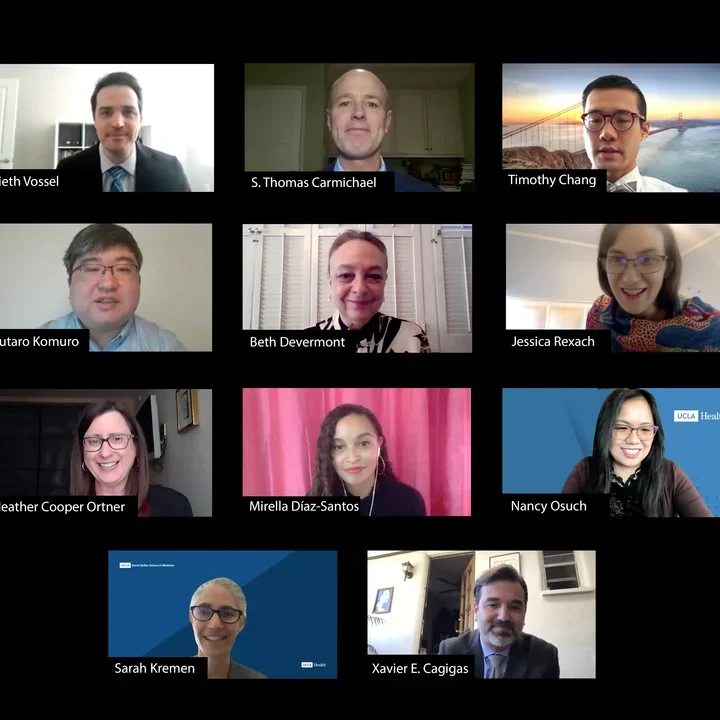Winter/Spring 2021 E-Newsletter

In This Issue:
- 2020 Turken Research Award and Symposium
- New Results Support Promising Drug Candidate Developed by UCLA
Researchers - New Addition to the Easton Center
- Clinical Research Opportunities
- Upcoming Events
The Mary S. Easton Center for Alzheimer’s Disease Research at UCLA has very active teams working on basic research, drug discovery, biomarkers for early diagnosis and clinical activity including clinical trials, cognitive testing, and patient care.
2020 Turken Research Award and Symposium

In December 2020, we held the 30th annual Turken Research Award Event via webinar. This event is made possible through the generous support of Beth Devermont and her foundation, the Sam and Ida Turken Charitable Foundation, gifted through Alzheimer’s Los Angeles. The Turken foundation has sponsored this event since 1990 and supported a large number of accomplished scientists that have contributed breakthrough discoveries in the Alzheimer’s field.
We had another outstanding program with UCLA clinicians and scientist presenting on a large range of topics in Alzheimer’s research and care. The virtual format reached a wide audience, and 89 faculty, staff, and colleagues, attended the event. The event
featured a virtual poster session where 20 presenters displayed their posters and took Q&A from the audience, as well as several featured speakers.
Timothy Chang, MD, PhD, Assistant Professor of Neurology, led off the event with a talk titled “Rare Variant Network Analyses in Progressive Supranuclear Palsy.” The genetic causes of Alzheimer’s disease and related disorders, such as progressive supranuclear palsy, are complex, and require advanced computational tools to assess. Dr. Chang presented his novel approach to discovering rare genetic risk factors for dementias, combining biomedical informatics and genetics. By studying large sets of genetic data from patients with Alzheimer’s disease, progressive supranuclear palsy, and healthy controls, Dr. Chang has identified clusters of genes within specific brain cells, that are associated with dementia risk. Dr. Chang’s findings will help predict diagnosis, progression, and treatment response in neurodegenerative diseases.



